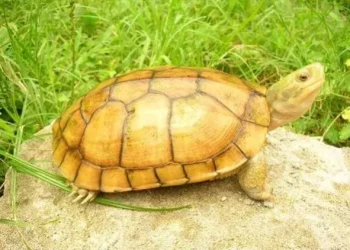Tortoises, with their slow and deliberate movements, often capture our fascination and affection. As pets, they require careful consideration of their dietary needs to ensure their health and longevity. Among the questions that arise from tortoise owners is whether cabbage can be a part of their diet. This article aims to provide a thorough exploration of this topic, addressing the nutritional needs of tortoises, the benefits and potential risks of feeding them cabbage, and guidelines for a balanced diet.
Understanding Tortoise Nutrition
Before diving into the specifics of cabbage, it’s essential to understand the nutritional requirements of tortoises. These reptiles are herbivorous, which means their diet consists primarily of plant material. However, their dietary needs are quite different from other pets, like dogs or cats. Tortoises are particularly sensitive to imbalances in their diet, which can lead to health issues such as metabolic bone disease or obesity.
Key Nutrients for Tortoises
Fiber: Tortoises need a high-fiber diet to support healthy digestion and prevent gastrointestinal problems. Fiber is crucial for maintaining gut motility and overall digestive health.
Calcium and Phosphorus: These minerals are vital for maintaining strong shells and bones. A proper balance between calcium and phosphorus is necessary, as an imbalance can lead to metabolic bone disease.
Vitamins: Vitamins A, C, and D3 play significant roles in maintaining immune function, vision, and overall health. Tortoises can obtain these vitamins from various leafy greens and vegetables.
Water: Adequate hydration is essential for all reptiles. Tortoises should have access to fresh water at all times, and their diet should also include water-rich foods.
Cabbage: Nutritional Profile and Benefits
Cabbage, a common leafy vegetable, is often considered for inclusion in tortoise diets due to its availability and nutritional value. Here’s a breakdown of its nutritional profile:
Fiber: Cabbage is a good source of dietary fiber, which is beneficial for tortoises’ digestive health.
Vitamins: Cabbage contains vitamins C and K, as well as some B vitamins. Vitamin C is an antioxidant that supports immune function, while vitamin K is essential for blood clotting and bone health.
Minerals: Cabbage provides calcium, though in smaller amounts compared to other leafy greens. It also contains phosphorus, which is necessary for energy metabolism.
See Also: Aldabra vs Galapagos Tortoises: What Is the Difference?
Antioxidants: Cabbage is rich in antioxidants such as flavonoids and polyphenols, which can help reduce oxidative stress and inflammation.
The Role of Cabbage in a Tortoise’s Diet
While cabbage can offer some nutritional benefits, it’s important to consider how it fits into the broader context of a tortoise’s diet. Here’s a closer look at the role cabbage can play:
Benefits
Digestive Health: The fiber content in cabbage can aid in digestion and help prevent constipation.
Immune Support: Vitamins C and K contribute to overall immune health and may help in maintaining a healthy shell.
Hydration: Cabbage has a high water content, which can contribute to hydration.
Risks and Considerations
Calcium to Phosphorus Ratio: One of the significant concerns with cabbage is its calcium-to-phosphorus ratio. A proper balance between these minerals is crucial for tortoises. Cabbage tends to have a higher phosphorus content relative to calcium, which could potentially lead to calcium deficiencies if fed in excess.
Goitrogens: Cabbage contains goitrogens, substances that can interfere with thyroid function when consumed in large amounts. For tortoises, this might not be a significant issue if cabbage is fed in moderation, but it’s a factor to consider.
Oxalates: Cabbage has oxalates, which can bind to calcium and reduce its absorption. High oxalate levels in the diet can contribute to calcium deficiencies over time.
Digestive Upset: Introducing new foods suddenly can sometimes cause digestive issues. It’s essential to monitor your tortoise for any adverse reactions when introducing cabbage.
Guidelines for Feeding Cabbage to Tortoises
To ensure that cabbage is a beneficial addition to your tortoise’s diet, follow these guidelines:
Moderation is Key: Cabbage should be offered as an occasional treat rather than a staple part of the diet. A small amount mixed with other leafy greens can be a good approach.
Variety: Ensure that cabbage is part of a varied diet that includes other vegetables, leafy greens, and high-fiber plants. Diversity in the diet helps prevent nutritional imbalances.
Preparation: Wash cabbage thoroughly to remove any pesticides or contaminants. Offering it chopped into small, manageable pieces can help with digestion.
Monitor Health: Observe your tortoise’s reaction to cabbage and adjust accordingly. If you notice any signs of digestive upset or other health issues, discontinue feeding cabbage and consult with a veterinarian.
Alternatives to Cabbage
If you’re concerned about the potential risks of feeding cabbage, consider these alternative leafy greens and vegetables that are generally well-suited for tortoises:
Leafy Greens: Collard greens, mustard greens, and dandelion greens offer a better calcium-to-phosphorus ratio and are rich in nutrients.
Vegetables: Squash, bell peppers, and carrots can provide variety and additional nutrients without the risks associated with cabbage.
Herbs: Basil, parsley, and cilantro can be offered in small amounts to add flavor and variety to your tortoise’s diet.
Conclusion
In summary, cabbage can be a part of a tortoise’s diet, but it should be offered in moderation and as part of a diverse and balanced diet. The potential risks, such as imbalances in calcium and phosphorus and the presence of goitrogens, should be considered when incorporating cabbage into your tortoise’s meals. By following proper feeding guidelines and maintaining a varied diet, you can ensure your tortoise remains healthy and happy.
As always, consulting with a veterinarian who specializes in reptiles can provide tailored advice and ensure that your tortoise’s dietary needs are being met effectively. Understanding the nuances of tortoise nutrition and making informed choices will help support the well-being of these fascinating and beloved creatures.
Related Topics:























